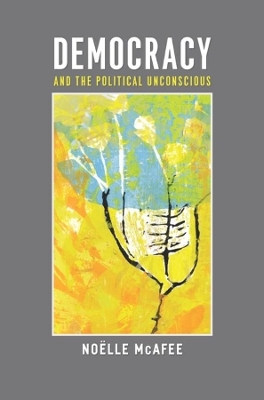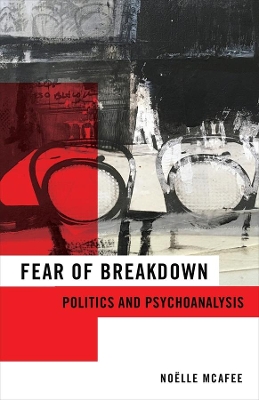New Directions in Critical Theory
2 primary works
Book 10
Political philosopher Noelle McAfee proposes a powerful new political theory for our post-9/11 world, in which an old pathology-the repetition compulsion-has manifested itself in a seemingly endless war on terror. McAfee argues that the quintessentially human desire to participate in a world with others is the key to understanding the public sphere and to creating a more democratic society, a world that all members can have a hand in shaping. But when some are effectively denied this participation, whether through trauma or terror, instead of democratic politics, there arises a political unconscious, an effect of desires unarticulated, failures to sublimate, voices kept silent, and repression reenacted. Not only is this condition undemocratic and unjust, it may lead to further trauma. Unless its troubles are worked through, a political community risks continual repetition and even self-destruction. McAfee deftly weaves together her experience as an observer of democratic life with an array of intellectual schemas, from poststructural psychoanalysis to Rawlsian and Habermasian democratic theories, as well as semiotics, civic republicanism, and American pragmatism.
She begins with an analysis of the traumatic effects of silencing members of a political community. Then she explores the potential of deliberative dialogue and other "talking cures" and public testimonies, such as the South African Truth and Reconciliation Commission, to help societies work through, rather than continually act out, their conflicts. Democracy and the Political Unconscious is rich in theoretical insights, but it is also grounded in the practical problems of those who are trying to process the traumas of oppression, terror, and brutality and create more decent and democratic societies. Drawing on a breathtaking range of theoretical frameworks and empirical observations, Democracy and the Political Unconscious charts a course for democratic transformation in a world sorely lacking in democratic practice.
She begins with an analysis of the traumatic effects of silencing members of a political community. Then she explores the potential of deliberative dialogue and other "talking cures" and public testimonies, such as the South African Truth and Reconciliation Commission, to help societies work through, rather than continually act out, their conflicts. Democracy and the Political Unconscious is rich in theoretical insights, but it is also grounded in the practical problems of those who are trying to process the traumas of oppression, terror, and brutality and create more decent and democratic societies. Drawing on a breathtaking range of theoretical frameworks and empirical observations, Democracy and the Political Unconscious charts a course for democratic transformation in a world sorely lacking in democratic practice.
Book 65
What is behind the upsurge of virulent nationalism and intransigent politics across the globe today? In Fear of Breakdown, Noëlle McAfee uses psychoanalytic theory to explore the subterranean anxieties behind current crises and the ways in which democratic practices can help work through seemingly intractable political conflicts. Working at the intersection of psyche and society, McAfee draws on psychoanalyst D. W. Winnicott’s concept of the fear of breakdown to show how hypernationalism stems from unconscious anxieties over the origins of personal and social identities, giving rise to temptations to reify exclusionary phantasies of national origins.
Fear of Breakdown contends that politics needs something that only psychoanalysis has been able to offer: an understanding of how to work through anxieties, ambiguity, fragility, and loss in order to create a more democratic politics. Coupling robust psychoanalytic theory with concrete democratic practice, Fear of Breakdown shows how a politics of working through can help counter a politics of splitting, paranoia, and demonization. McAfee argues for a new approach to deliberative democratic theory, not the usual philosopher-sanctioned process of reason-giving but an affective process of making difficult choices, encountering others, and mourning what cannot be had.
Fear of Breakdown contends that politics needs something that only psychoanalysis has been able to offer: an understanding of how to work through anxieties, ambiguity, fragility, and loss in order to create a more democratic politics. Coupling robust psychoanalytic theory with concrete democratic practice, Fear of Breakdown shows how a politics of working through can help counter a politics of splitting, paranoia, and demonization. McAfee argues for a new approach to deliberative democratic theory, not the usual philosopher-sanctioned process of reason-giving but an affective process of making difficult choices, encountering others, and mourning what cannot be had.

